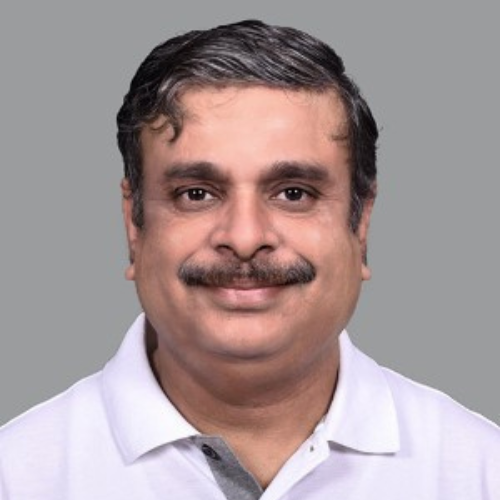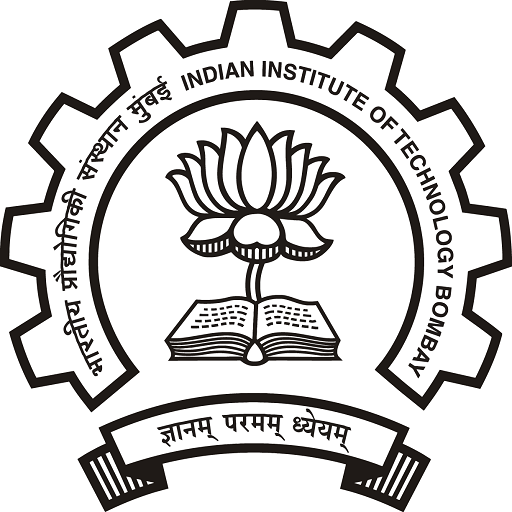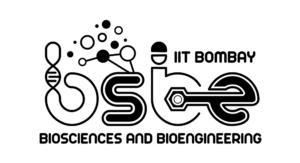Maji, S.K.
Dr. Samir K. Maji
Professor
Phone: +(91-22) 2576 7774
E-mail: samirmaji [at] iitb.ac.in
Location: Room No. 305, BSBE Building
Lab web page

Research Interest
- Studying mechanisms of protein mis-folding, aggregation and amyloid formation associated with human neurodegenerative diseases such as Alzheimer’s, Parkinson’s and Prions.
- p53 amyloids in cancer
- Understanding the role of amyloid in secretory granules biogenesis in mammalian organs.
- De novo design of functional amyloids for drug delivery and tissue engineering
Academic Background
- 1996: B.Sc (Chemistry) University of Calcutta, Kolkata, WB
- 1998: M.Sc (Chemistry) University of Calcutta, Kolkata, WB
- 2002: Ph.D. (Peptide Chemistry) Indian association for The Cultivation of Science, Jadavpur, Kolkata, WB
Teaching (current)
Biological Thermodynamics and Kinetics, Biophysics Laboratory, Biophysical Chemistry, Topics in Biotechnology
Professional Experience
- Harvard Medical School and BWH , USA
- University of California, Los Angeles, USA
- Salk Institute, La jolla, USA
- ETH Zurich, Switzerland
Awards/Honors
- Fellow of Royal Society of Chemistry (FRSC) (2021)
- Elected as Fellow of National Academy of Science, India (FNASc) (2020).
- IIT Bombay Excellence in Teaching Award(2020)
- Tata Innovation Fellowship by the Department of Biotechnology (DBT) (2020).
- NASI-Reliance Platinum Jubilee Awardfor Application Oriented Innovation in Biological Sciences (2019).
- Editorial Board Memberof The Journal of Biological Chemistry (2018).
- National Bioscience Award for Career Development, by the Department of Biotechnology 2016
- IIT Bombay Research Publication Award for the year 2016
- Young researcher award, Lady Tata memorial Trust 2013
Selected Publications
- Ambuja Navalkar, Ajoy Paul, Arunima Sakunthala, Satyaprakash Pandey, Amit Kumar Dey, Sandhini Saha, Sarthak Sahoo, Mohit K Jolly, Tushar K Maiti, Samir K Maji, (2022), Oncogenic gain of function due to p53 amyloids occurs through aberrant alteration of cell cycle and proliferation, Journal of Cell Science 135(15), jcs259500 Link (First person interview Link)
- Debdeep Chatterjee, Reeba S Jacob, Soumik Ray, Ambuja Navalkar, Namrata Singh, Shinjinee Sengupta, Laxmikant Gadhe, Pradeep Kadu, Debalina Datta, Ajoy Paul, Sakunthala Arunima, Surabhi Mehra, Chinmai Pindi, Santosh Kumar, Praful Singru, Sanjib Senapati, Samir K Maji, (2022), Co-aggregation and secondary nucleation in the life cycle of human prolactin/galanin functional amyloids, eLife 11: e73835 Link (BioRxiv Link)
- S Ray and SK Maji (2020), Predictable phase-separated proteins. Nature Chemistry, 12:787–789 (invited commentary article)
- S Ray, N Singh, R Kumar, K Patel, S Pandey, D Datta, J Mahato, R Panigrahi, A Navalkar, S Mehra, L Gadhe, D Chatterjee, AS Sawner, S Maiti, S Bhatia, J Gerez, A Chowdhury, A Kumar, R Padinhateeri, R Riek, G Krishnamoorthy and SK Maji, (2020), α‐Synuclein aggregation nucleates through liquid-liquid phase separation. Nature Chemistry , 12:705–716.
- A Navalkar, S Ghosh, S Pandey, A Paul, D Datta and SK Maji (2019), Prion-like p53 amyloids in cancer. Biochemistry, 59 (2):146–155.
- S Mehra, D Ghosh, R Kumar, M Mondal, LG Gadhe, S Das, A Anoop, NN Jha, RS Jacob, D Chatterjee, S Ray, N Singh, A Kumar, and SK Maji (2018), Glycosaminoglycans have variable effects on α-synuclein aggregation and differentially affect the activities of the resulting amyloid fibrils. Journal of Biological Chemistry, 293(34): 12975-12991.
- R Kumar, S Das, GM Mohite, SK Rout, S Halder, NN Jha, S Ray, S Mehra, V Agarwal and SK Maji (2018), Cytotoxic oligomers and fibrils trapped in a gel-like state of α-synuclein assemblies. Angewandte Chemie International Edition, 7(19), 5262-5266.
- S Ghosh, S Salot, S Sengupta, A Navalkar, D Ghosh, RS Jacob, S Das, R Kumar, NN Jha, S Sahay, S Mehra, GM Mohite, SK Ghosh, M Kombrabail, G Krishnamoorthy, P Chaudhari, and SK Maji (2017), p53 amyloid formation leading to its loss of function: Implications in cancer pathogenesis. Cell Death and Differentiation, 24:1784–1798.
- S Das, K Zhou, D Ghosh, NN Jha, PK Singh, RS Jacob, C Bernard, D Finkelstein, J Forsythe and SK Maji (2016), Implantable Amyloid Hydrogels for Promoting Stem Cell Differentiation to Neurons. NPG Asia Materials, 8:e304; DOI:10.1038/am.2016.116.
- RS Jacob, E George, PK Singh, S Salot, A Anoop, NN Jha, S Sen and SK Maji (2016), Cell Adhesion on Amyloid Fibrils Lacking Integrin Recognition Motif. Journal of Biological Chemistry, 4,291(10):5278-5298.
- RS Jacob; D Ghosh; PK Singh; SK Basu; NN Jha; S Das; PK Sukul; S Patil; S Sathaye; A Kumar; A Chowdhury; S Malik; S Sen; SK Maji (2015). Self-Healing Hydrogels Composed of Amyloid Nano Fibrils for Cell Culture and Stem Cell Differentiation. Biomaterials, 54:97-105
- S Sahay, D Ghosh, S Dwivedi S, A Anoop, GM Mohite, M Kombrabail, G Krishnamoorthy, SK Maji (2015), Familial Parkinson’s disease associated mutations alter the site-specific microenvironment and dynamics of α-Synuclein. Journal Biological Chemistry, 290(12):7804-22
- SK Maji, MH. Perrin, MR Sawaya, S Jessberger, K Vadodaria, RA Rissman, PS Singru, KPR Nilsson, R Simon, D Schubert, D Eisenberg, J Rivier, P Sawchenko, W Vale and R Riek (2009) Functional Amyloids as Natural Storage of Peptide Hormones in Pituitary Secretory Granules, Science 325: 328-332.
- SK Maji, D. Schubert, JE Rivier, C Rivier, S Lee and R Riek (2008) Amyloid as depot for the formulation of long-acting drugs (2008), PLoS Biology, 6(2):e17.

